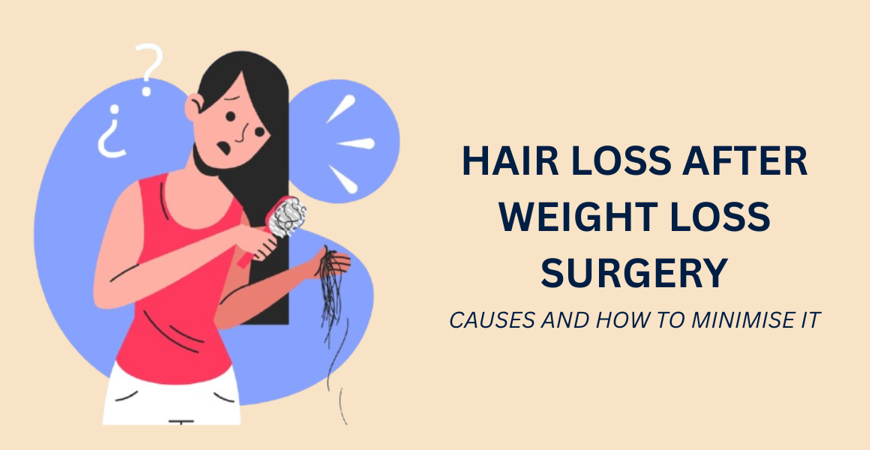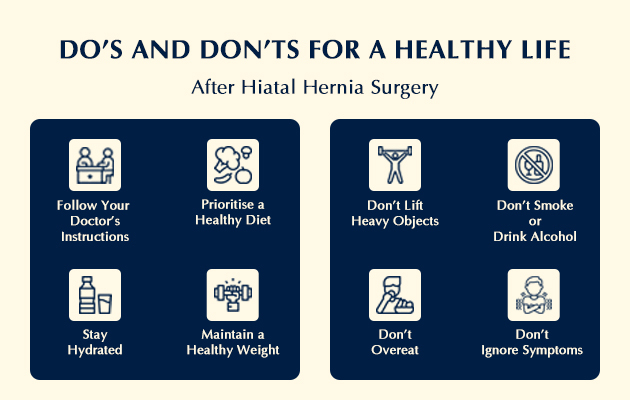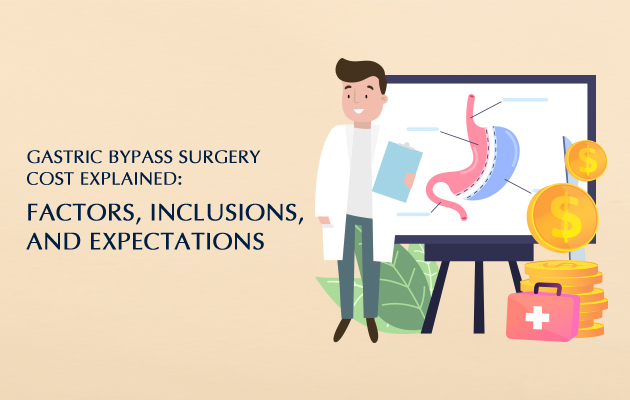Weight loss surgery is a proven medical treatment that helps individuals achieve long-term weight reduction and manage obesity-related health issues. While procedures like the gastric sleeve or gastric bypass offer significant health benefits, they also alter how the body processes nutrients. Many patients experience side effects during recovery, and one of the most common is temporary hair loss.
Hair loss after weight loss surgery is a common but temporary concern that can affect your emotional well-being and self-esteem. If you're considering weight loss surgery in Melbourne or have recently undergone the procedure, understanding why this happens and how to manage it is important.
In this blog, we’ll explain:
-
Why Do You Lose Hair After Weight Loss Surgery?
-
How Common is Hair Loss After Weight Loss Surgery?
-
What Nutrition Deficiency Causes Hair Loss?
-
How to Prevent Hair Loss After Weight Loss Surgery
-
When Should You Be Concerned About Hair Loss After Weight Loss Surgery?
-
Why Choose Dr. Niruben Rajasangram if You’re Experiencing Hair Loss After Weight Loss Surgery?
Why Do You Lose Hair After Weight Loss Surgery?
Hair loss after weight loss surgery, also known as telogen effluvium, is a common condition that affects many individuals. It usually occurs three to six months post-surgery and is linked to the changes your body goes through during weight loss.
Here are some reasons for hair loss after weight loss surgery:
1. Nutritional Deficiencies
One of the most common causes of hair loss after bariatric procedures is a lack of essential nutrients. After surgery, your body absorbs fewer vitamins and minerals due to a smaller stomach size or bypassed intestinal segments.
2. Quick Weight Loss
Extreme or rapid weight loss can put the body under physical stress. Your body begins to focus its energy on important organs and functions, and hair growth temporarily takes a backseat. This results in more hair entering the “resting” or shedding phase.
3. Hormonal Changes
After surgery, the body experiences hormonal fluctuations, particularly changes in insulin, oestrogen, and thyroid hormones. These shifts can interrupt the normal hair growth cycle.
4. Surgical Stress
Major surgery itself is a form of trauma to the body. Just like after any major surgery, temporary hair loss may occur as part of the body’s response to the stress.
How Common is Hair Loss After Weight Loss Surgery?
Hair loss is very common after bariatric surgery, especially gastric sleeve or gastric bypass. It affects about 30–50% of patients, typically starting between the 3rd and 6th month post-surgery and resolving within 6–12 months.
This type of hair loss is not permanent. Once your body adapts to the new nutritional and metabolic state, hair growth usually stabilises and improves.
What Nutrition Deficiency Causes Hair Loss?
Many people ask, “What nutritional deficiency causes hair loss?” The answer isn’t just one; it’s often a combination of several. Here are the major ones:
Iron Deficiency
Low iron levels reduce oxygen supply to the scalp, weakening hair follicles. Iron-deficiency anaemia is a key cause of hair loss, especially in women.
Protein Deficiency
Protein is important for tissue repair and growth, including hair follicles. After surgery, if protein intake is inadequate, your body prioritises protein for vital organs, leading to hair thinning.
Zinc Deficiency
Zinc supports tissue repair and hormone balance. Lack of zinc can contribute to both hair shedding and slow regrowth.
Biotin and B-Complex Deficiency
Biotin helps strengthen hair and nails. Deficiencies in biotin or other B vitamins (B6, B12, and folate) can lead to brittle, thinning hair.
Vitamin D Deficiency
Vitamin D is important for healthy follicle cycling. Low levels may interfere with hair regeneration.
How to Prevent Hair Loss After Weight Loss Surgery?
While some hair loss may be inevitable, there are several ways to minimise it and speed up regrowth. Here’s how you can take care of your hair post-surgery:
1. Prioritise Protein Intake
Aim for 60–80 grams of protein daily as recommended by your weight loss surgeon or dietitian. Include lean meats, eggs, Greek yoghurt, lentils, and protein shakes in your diet.
2. Follow Your Supplement Routine Religiously
Your surgeon will prescribe vitamin and mineral supplements after surgery. Do not skip them. These typically include:
-
Multivitamins
-
Iron (with Vitamin C to boost absorption)
-
Calcium citrate with Vitamin D
-
Vitamin B12
-
Biotin
-
Zinc
Regular blood tests will help your surgeon adjust your supplements as needed.
3. Stay Hydrated
Dehydration can also impact hair quality. Ensure you're drinking enough water throughout the day.
4. Limit Heat Styling and Harsh Hair Treatments
Avoid excessive blow-drying, straightening, or colouring your hair during the recovery period. These can weaken your already fragile hair.
5. Use Gentle Hair Products
Choose shampoos and conditioners free from sulphates and parabens. Consider using products that promote scalp health and hair strengthening.
6. Avoid Crash Dieting Post-Surgery
Stick to your surgeon-approved meal plan. Crash dieting or skipping meals may lead to further nutritional deficiencies and increased hair loss.
7. Regular Follow-Up With Your Weight Loss Surgeon
Stay in close contact with your weight loss surgeon in Melbourne. Regular follow-up appointments are essential to monitor your recovery, nutrition levels, and overall health.
|
Note: Always consult an experienced surgeon before following any of the above suggestions, as the right approach depends on your individual needs, type of surgery, and other personal factors. Avoid making changes on your own, as this may affect your health and impact your weight loss goals. |
When Should You Be Concerned About Hair Loss After Weight Loss Surgery?
If your hair loss continues beyond 12 months, or if you notice bald patches, severe shedding, or other symptoms like fatigue or brittle nails, it’s important to seek medical advice. Persistent hair loss may signal:
-
Ongoing nutritional deficiencies
-
Thyroid issues
-
Autoimmune conditions like alopecia
An experienced and skilled weight loss surgeon can refer you to a dermatologist or nutritionist for further assessment and targeted support.
For patients preparing for gastric sleeve surgery, proper planning can also help minimise post-surgery complications, including hair loss. Learn more in our Complete Guide to Preparing for Gastric Sleeve Surgery: Mental, Physical, and Dietary Steps.
Contact Dr. Niruben Rajasangram if You’re Experiencing Hair Loss After Weight Loss Surgery.
If you're facing hair loss after weight loss surgery, Dr. Niruben Rajasangram offers the expertise and support you need. As a trusted weight loss surgeon in Melbourne, he provides:
-
Personalised post-op care
-
Nutritional guidance to prevent hair loss
-
Regular follow-ups and health checks
-
Compassionate, patient-focused support
If you are looking for a highly experienced, skilled, and patient-focused weight loss surgeon near you, Dr. Niruben provides personalised care backed by clinical expertise and proven outcomes.
Take Away
Hair loss after weight loss surgery can be distressing, but it’s a common and usually temporary part of the recovery journey. Understanding the causes, especially nutritional deficiencies, and taking steps to maintain proper nutrition can make a significant difference.
By working closely with your weight loss surgeon, maintaining a balanced diet, and being patient, most people see their hair grow back within a year.
Here is a brief overview of the causes of hair loss after weight loss surgery and practical ways to reduce it:
-
Hair loss after weight loss surgery is common and temporary.
-
Nutrient deficiencies (iron, protein, biotin, zinc, vitamin D) are major causes.
-
Stick to your supplement plan and prioritise protein-rich foods.
-
Avoid harsh styling and use gentle hair care products.
-
Stay in touch with your weight loss surgeon near you for ongoing support.
To get more detailed and personalised guidance and recommendations, visit our weight loss centre and consult Dr. Niruben Rajasangram.








